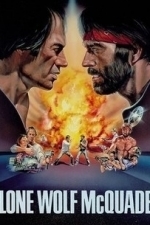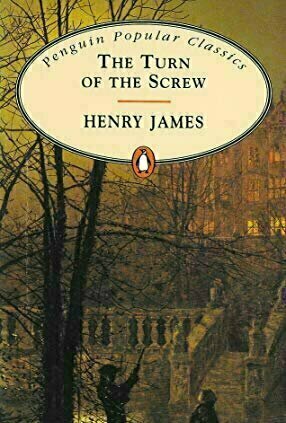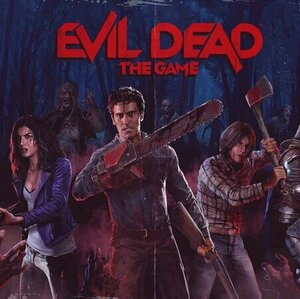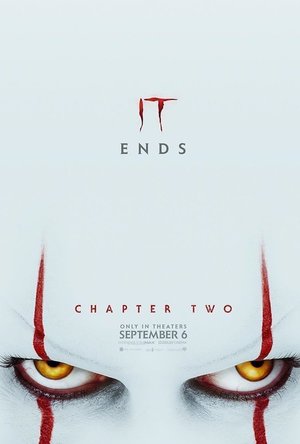Search
Search results
TheDefunctDiva (304 KP) rated Lone Wolf McQuade (1983) in Movies
Oct 6, 2017
L is for Lethal
Contains spoilers, click to show
Lone Wolf McQuade (P. 2/9/08)
As my ex-husband and his co-workers once discussed, this 1983 Chuck Norris classic contains an inexhaustible list of “man movie” elements. I shall enumerate just a few of the highlights here (spoiler warning):
Turbo-charged truck that hasn’t been washed in 20 years…check.
Multiple cut-away scenes containing only foul language…check.
Good guy silhouetted on cliff…check.
Too-tight pants…check.
Too-hairy chest…check.
Good guy lives in filthy, ramshackle bachelor pad…check.
Good guy assigned a partner that he doesn’t want…check.
Feds interfering with good guy’s investigation…check.
Evil, maniacally laughing, midget villain in a wheelchair…check.
Bad guys attempting to kill good guy’s daughter…check.
Same daughter later gets abducted by bad guys…check.
Good guy has disproportionately hot girlfriend…check.
Same girlfriend wears nothing but good-guy’s shirt, post coital…check.
Good guy hanging off hood of moving vehicle…check.
Good guys outnumbered by bad guys in every fight scene…check.
Single, long-range gunshot or arrow from crossbow causing car explosion…check.
Bad guy using a contrived mechanism to kill good guy, instead of simply shooting him in the head…check.
Beer, beer, and more beer, which magically revitalizes the good guy…check.
Strategically placed blood…check.
Flaming barrels…check.
Women totally incapable of defending themselves…check.
Good guy and bad guy putting down their weapons and facing off in physical fight…check.
Hot girlfriend dying in good guy’s arms, while professing her guilt and undying love…check.
More flaming barrels…check.
I could go on and on.
Among many other cheesy elements in this movie, I especially enjoyed the moments of obvious symbolism. The opening shot contains a psychedelic-looking, lone wolf accompanied by nothing but whistling. Later, when the bad guys attempt to kill Lone Wolf McQuade, they first assassinate his pet wolf. Foreshadowing, anyone? Another blatant symbol appears when Captain Tyler lectures McQuade about the public image of a ranger. The Captain holds a ruler in his hand, presumably because McQuade doesn’t “measure up” to his expectations. Ha!
In the most entertaining scene of the movie, Lone Wolf has been buried alive in his truck by the bad guy. Beaten and broken, he opens a can of beer found on the front seat, pours it over his effusively sweaty self, takes a sip, and then finds the strength to go on. With his eyes closed, and his head thrown back, he alternately opens and clenches his jaw while emitting a prolonged man-grunt. He then steps dramatically on the accelerator of his super-charged vehicle and is able to drive out of his own grave.
With the ridiculous costuming, cliché dialogue, subpar acting, and utterly horrible score, this film would have worked far better as a comedy. If you plan to watch it, expect to be incredulous, and try to avoid staring directly at Chuck’s hairy chest.
As my ex-husband and his co-workers once discussed, this 1983 Chuck Norris classic contains an inexhaustible list of “man movie” elements. I shall enumerate just a few of the highlights here (spoiler warning):
Turbo-charged truck that hasn’t been washed in 20 years…check.
Multiple cut-away scenes containing only foul language…check.
Good guy silhouetted on cliff…check.
Too-tight pants…check.
Too-hairy chest…check.
Good guy lives in filthy, ramshackle bachelor pad…check.
Good guy assigned a partner that he doesn’t want…check.
Feds interfering with good guy’s investigation…check.
Evil, maniacally laughing, midget villain in a wheelchair…check.
Bad guys attempting to kill good guy’s daughter…check.
Same daughter later gets abducted by bad guys…check.
Good guy has disproportionately hot girlfriend…check.
Same girlfriend wears nothing but good-guy’s shirt, post coital…check.
Good guy hanging off hood of moving vehicle…check.
Good guys outnumbered by bad guys in every fight scene…check.
Single, long-range gunshot or arrow from crossbow causing car explosion…check.
Bad guy using a contrived mechanism to kill good guy, instead of simply shooting him in the head…check.
Beer, beer, and more beer, which magically revitalizes the good guy…check.
Strategically placed blood…check.
Flaming barrels…check.
Women totally incapable of defending themselves…check.
Good guy and bad guy putting down their weapons and facing off in physical fight…check.
Hot girlfriend dying in good guy’s arms, while professing her guilt and undying love…check.
More flaming barrels…check.
I could go on and on.
Among many other cheesy elements in this movie, I especially enjoyed the moments of obvious symbolism. The opening shot contains a psychedelic-looking, lone wolf accompanied by nothing but whistling. Later, when the bad guys attempt to kill Lone Wolf McQuade, they first assassinate his pet wolf. Foreshadowing, anyone? Another blatant symbol appears when Captain Tyler lectures McQuade about the public image of a ranger. The Captain holds a ruler in his hand, presumably because McQuade doesn’t “measure up” to his expectations. Ha!
In the most entertaining scene of the movie, Lone Wolf has been buried alive in his truck by the bad guy. Beaten and broken, he opens a can of beer found on the front seat, pours it over his effusively sweaty self, takes a sip, and then finds the strength to go on. With his eyes closed, and his head thrown back, he alternately opens and clenches his jaw while emitting a prolonged man-grunt. He then steps dramatically on the accelerator of his super-charged vehicle and is able to drive out of his own grave.
With the ridiculous costuming, cliché dialogue, subpar acting, and utterly horrible score, this film would have worked far better as a comedy. If you plan to watch it, expect to be incredulous, and try to avoid staring directly at Chuck’s hairy chest.
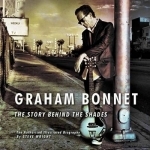
Graham Bonnet: The Story Behind the Shades
Book
Graham Bonnet was born in Skegness in 1947 and had his first hit single with The Marbles in 1968,...

Sybu for Kodi and XBMC
Entertainment and Music
App
Sybu Remote Control for Kodi Media Centre http://kodi.tv and XBMC •Remote Control Kodi media...
Sarah (7800 KP) rated It’s A Sin in TV
Feb 7, 2021
Outstanding drama
It’s A Sin is the latest drama from the mind of Russell T Davies, the man behind Queer as Folk, Cucumber and the revival of Doctor Who back in 2005. It follows a group of gay men and their friends in London from 1981 to 1991, depicting how the developing HIV and AIDS crisis impacted on their lives.
The series concentrates on 5 friends who meet in 1981 and move into a flat together. There’s outgoing and smart Ritchie (Olly Alexander), shy and mild mannered Colin (Callum Scott Howells), flamboyant Nigerian Roscoe (Omari Douglas), sweet Ash (Nathaniel Curtis) and outgoing, responsible Jill (Lydia West). It’s A Sin follows the friends as they party and lead promiscuous lifestyles over the 80s, only for the AIDS crisis to slowly weave its way into their lives and affect friends and colleagues closest to them. Each deals with the developing crisis in their own way: Jill fights for AIDS awareness and help for those that are suffering, whereas Ritchie remains in denial and spreads conspiracy theories about AIDS. But by 1991, the lives of the group and their families have been irrevocably changed.
It’s A Sin is a powerful drama about an emotive and serious subject. While it is not based on a completely true story (only Jill is loosely based on a real person, Jill Nalder, a friend of Davies), Russell T Davies has based this around his and his friends experiences of the AIDS crisis in the 80s and watching this you can really believe that these sorts of events happened across the 80s and 90s. The attitudes and experiences shown here, from the hedonistic lifestyles to the rampant denial and conspiracy theories, are terrifying and sadly a true to life depiction of the attitudes at the time, and make for a rather emotional and sometimes harrowing watch.
Despite the serious subject, It’s A Sin isn’t entirely sombre. It starts out as a story of friendship and fun and there are a lot of heartwarming scenes and a surprising amount of laughs. Some might think the uplifting side of this drama detracts from the seriousness of the AIDS crisis, but personally I found the lighthearted scenes helped balance the rather sobering seriousness, especially as the episodes gradually become more and more grave as the crisis progresses. Even the gay sex scenes are fun and made mostly for laughs rather than any sort of eroticism. It’s impressive that Davies has managed to pull off a series that seamlessly blends lighthearted entertainment with a serious topic, without making light of such a harrowing crisis.
It helps that the cast are fantastic. Olly Alexander, who I knew nothing about other than recognising a few Years and Years songs, is an absolute star and a standout as Ritchie. He’s charismatic and engaging and when he’s on screen, you can’t take your eyes off him. The rest of the main cast too are just as good, especially this being their first major tv role in the case of Howells and Douglas. They’re ably supported by a host of seasoned veterans, including Neil Patrick Harris as Colin’s work colleague, Stephen Fry as a closeted MP that Roscoe meets, and Keeley Hawes and Shaun Dooley as Ritchie’s parents. Hawes and Dooley are especially moving and ultimately surprising in the later episodes, when their true attitudes as parents are revealed. My only real criticism of this series is so minor it’s barely worth mentioning, but I did get a little frustrated that Ritchie’s full name was Ritchie Tozer, as this is the same name as Richie Tozier from Stephen King’s IT. Admittedly a different spelling, but it did grate on me a little throughout the episodes as it’s not exactly a common name.
However despite my reservations on character naming, It’s A Sin is a fantastic heartwarming yet sobering drama that can’t be faulted. It’s been a long time since I’ve seen anything so engaging and emotional.
The series concentrates on 5 friends who meet in 1981 and move into a flat together. There’s outgoing and smart Ritchie (Olly Alexander), shy and mild mannered Colin (Callum Scott Howells), flamboyant Nigerian Roscoe (Omari Douglas), sweet Ash (Nathaniel Curtis) and outgoing, responsible Jill (Lydia West). It’s A Sin follows the friends as they party and lead promiscuous lifestyles over the 80s, only for the AIDS crisis to slowly weave its way into their lives and affect friends and colleagues closest to them. Each deals with the developing crisis in their own way: Jill fights for AIDS awareness and help for those that are suffering, whereas Ritchie remains in denial and spreads conspiracy theories about AIDS. But by 1991, the lives of the group and their families have been irrevocably changed.
It’s A Sin is a powerful drama about an emotive and serious subject. While it is not based on a completely true story (only Jill is loosely based on a real person, Jill Nalder, a friend of Davies), Russell T Davies has based this around his and his friends experiences of the AIDS crisis in the 80s and watching this you can really believe that these sorts of events happened across the 80s and 90s. The attitudes and experiences shown here, from the hedonistic lifestyles to the rampant denial and conspiracy theories, are terrifying and sadly a true to life depiction of the attitudes at the time, and make for a rather emotional and sometimes harrowing watch.
Despite the serious subject, It’s A Sin isn’t entirely sombre. It starts out as a story of friendship and fun and there are a lot of heartwarming scenes and a surprising amount of laughs. Some might think the uplifting side of this drama detracts from the seriousness of the AIDS crisis, but personally I found the lighthearted scenes helped balance the rather sobering seriousness, especially as the episodes gradually become more and more grave as the crisis progresses. Even the gay sex scenes are fun and made mostly for laughs rather than any sort of eroticism. It’s impressive that Davies has managed to pull off a series that seamlessly blends lighthearted entertainment with a serious topic, without making light of such a harrowing crisis.
It helps that the cast are fantastic. Olly Alexander, who I knew nothing about other than recognising a few Years and Years songs, is an absolute star and a standout as Ritchie. He’s charismatic and engaging and when he’s on screen, you can’t take your eyes off him. The rest of the main cast too are just as good, especially this being their first major tv role in the case of Howells and Douglas. They’re ably supported by a host of seasoned veterans, including Neil Patrick Harris as Colin’s work colleague, Stephen Fry as a closeted MP that Roscoe meets, and Keeley Hawes and Shaun Dooley as Ritchie’s parents. Hawes and Dooley are especially moving and ultimately surprising in the later episodes, when their true attitudes as parents are revealed. My only real criticism of this series is so minor it’s barely worth mentioning, but I did get a little frustrated that Ritchie’s full name was Ritchie Tozer, as this is the same name as Richie Tozier from Stephen King’s IT. Admittedly a different spelling, but it did grate on me a little throughout the episodes as it’s not exactly a common name.
However despite my reservations on character naming, It’s A Sin is a fantastic heartwarming yet sobering drama that can’t be faulted. It’s been a long time since I’ve seen anything so engaging and emotional.
Hadley (567 KP) rated The Turn of the Screw in Books
Mar 24, 2020 (Updated Mar 24, 2020)
Well written (1 more)
Ahead of its time
Overly descriptive (1 more)
Vague
The ghost stories of the Victorian era are full of scares and mysteries- - - from the karma-ridden future, past and present ghosts of Charles Dickens' "A Christmas Carol" to the comedic ghost story by Oscar Wilde called 'the Canterville Ghost." But among all of them, Henry James found another subject to add to the pot in the novella 'the Turn of the Screw.'
With only 93 pages and the viewpoint of a governess, the story is one that has been up for debate as to its meaning for over a century, a story that blends child abuse and ghostly possession way ahead of its time. But even with its great plot, the story falls short and becomes bland throughout most of its short pages.
So why is the meaning of the Turn of the Screw still being debated? There's only one thing that has caused that --- it's in the way that James wrote the story, nothing is explained and everything is vague, these being very important parts that can keep this book from being enjoyable to many readers. Here's a summary of the story: a woman becomes governess of two children, one of which is sent home from school (technically expelled, in today's terms), the entire book has this woman trying to figure out why the child was sent home, but with ghosts thrown into the mix.
The story starts off with a man telling this ghost story from letters he received from a woman (the governess). But, even at the end of the book, the story never turns back to the man finishing the letters, yet this was done so masterfully that when you are done with the book, you completely forget about the man at the beginning, something that isn't easily done today in most writing. The man is reading these letters to a small audience that is also never revealed why, something that will seem completely irrelevant for the reader.
Readers finally get their paranormal fix when our main character, the governess, sees her first ghost in the Turn of the Screw. Our governess goes on an isolated walk when she spots an older man staring at her from a tower on the estate. But not until after a second encounter with this man, she decides to tell a housemaid about it, who quickly knows whom she speaks of. The maid is very certain that the man the governess has spotted twice is a deceased man that used to work for the family, but the maid is terrified by this because this man seems to have been abusive towards the son of the family and now seems to be continuing to torment him even after death.
Our governess seems to go down a path of paranoia as she seems to believe that the children are seeing the ghosts, too, but refusing to tell her so, and she becomes convinced that the key to getting them to confess is to finding out why the boy was sent home from school in the first place. She tries many times to get him to tell her why, but lets him take control of the conversations where he is able to divert the attention to something else. When things seem to be too much for the governess and housemaid to handle, they decide to try to write the childrens' uncle, and ask him to visit - - - this being the uncle that hired the governess and asked to never be bothered by her again, and that he wants nothing to do with his niece and nephew ever again, and especially don't write to him about any problems.
James is considered one of the greatest authors of the English language, but although this novella did very well, he wasn't known for ghost stories. His most popular book is 'the Portrait of a Lady,' which is about a young woman who comes into a large amount of money only to have it stolen by two con-men. Being that he is a Victorian-era writer, you can expect the overly long paragraphs and descriptions that the time was known for in 'the Turn of the Screw.' I personally felt the story had too many interludes of the governess' thoughts and ideas, which border on rambling. There seemed no point in the governess obsessing over why the boy was sent home from school when there are ghosts tormenting them at home- - - how this mode was suppose to work has left me clueless.
It's a usual horror trope to have children being possessed as the core of a book because it's something that can shake adults to their core at the thought that their own children could be that vulnerable. But James was way ahead of his time in the Turn of the Screw. He was able to put together psychological standpoints that weren't even discussed in his time, bouncing between child abuse with those children acting out to the power that abusers can still hold over their victims, even after death.
I'm giving the story a high rating, although I really didn't enjoy it. Why? Because it was a great idea and it was well written. If James hadn't been so vague on key parts, and hadn't left readers with a shocking unexplained ending, then maybe I would have liked it more. I can only recommend this book to people who like Victorian ghost stories, but for paranormal lovers, I think it falls short.
With only 93 pages and the viewpoint of a governess, the story is one that has been up for debate as to its meaning for over a century, a story that blends child abuse and ghostly possession way ahead of its time. But even with its great plot, the story falls short and becomes bland throughout most of its short pages.
So why is the meaning of the Turn of the Screw still being debated? There's only one thing that has caused that --- it's in the way that James wrote the story, nothing is explained and everything is vague, these being very important parts that can keep this book from being enjoyable to many readers. Here's a summary of the story: a woman becomes governess of two children, one of which is sent home from school (technically expelled, in today's terms), the entire book has this woman trying to figure out why the child was sent home, but with ghosts thrown into the mix.
The story starts off with a man telling this ghost story from letters he received from a woman (the governess). But, even at the end of the book, the story never turns back to the man finishing the letters, yet this was done so masterfully that when you are done with the book, you completely forget about the man at the beginning, something that isn't easily done today in most writing. The man is reading these letters to a small audience that is also never revealed why, something that will seem completely irrelevant for the reader.
Readers finally get their paranormal fix when our main character, the governess, sees her first ghost in the Turn of the Screw. Our governess goes on an isolated walk when she spots an older man staring at her from a tower on the estate. But not until after a second encounter with this man, she decides to tell a housemaid about it, who quickly knows whom she speaks of. The maid is very certain that the man the governess has spotted twice is a deceased man that used to work for the family, but the maid is terrified by this because this man seems to have been abusive towards the son of the family and now seems to be continuing to torment him even after death.
Our governess seems to go down a path of paranoia as she seems to believe that the children are seeing the ghosts, too, but refusing to tell her so, and she becomes convinced that the key to getting them to confess is to finding out why the boy was sent home from school in the first place. She tries many times to get him to tell her why, but lets him take control of the conversations where he is able to divert the attention to something else. When things seem to be too much for the governess and housemaid to handle, they decide to try to write the childrens' uncle, and ask him to visit - - - this being the uncle that hired the governess and asked to never be bothered by her again, and that he wants nothing to do with his niece and nephew ever again, and especially don't write to him about any problems.
James is considered one of the greatest authors of the English language, but although this novella did very well, he wasn't known for ghost stories. His most popular book is 'the Portrait of a Lady,' which is about a young woman who comes into a large amount of money only to have it stolen by two con-men. Being that he is a Victorian-era writer, you can expect the overly long paragraphs and descriptions that the time was known for in 'the Turn of the Screw.' I personally felt the story had too many interludes of the governess' thoughts and ideas, which border on rambling. There seemed no point in the governess obsessing over why the boy was sent home from school when there are ghosts tormenting them at home- - - how this mode was suppose to work has left me clueless.
It's a usual horror trope to have children being possessed as the core of a book because it's something that can shake adults to their core at the thought that their own children could be that vulnerable. But James was way ahead of his time in the Turn of the Screw. He was able to put together psychological standpoints that weren't even discussed in his time, bouncing between child abuse with those children acting out to the power that abusers can still hold over their victims, even after death.
I'm giving the story a high rating, although I really didn't enjoy it. Why? Because it was a great idea and it was well written. If James hadn't been so vague on key parts, and hadn't left readers with a shocking unexplained ending, then maybe I would have liked it more. I can only recommend this book to people who like Victorian ghost stories, but for paranormal lovers, I think it falls short.
Chris Sawin (602 KP) rated Alice in Wonderland (2010) in Movies
Jun 22, 2019 (Updated Jun 23, 2019)
13 years have passed since Alice first visited Wonderland. She was just a little girl back then. A mad, little girl plagued by a nightmare. Now, almost 20, Alice finds herself thrust headfirst into adulthood yet continues to have the same dream for as long as she can remember. On the verge of being thrown into a marriage she's unsure of, Alice finds herself easily distracted by the simplest things. What would it be like to fly? What if women wore trousers and men wore dresses? Or the fact that wearing a corset is similar to wearing a codfish on your head. The White Rabbit eventually distracts Alice long enough to lead her back down the rabbit hole for a return visit to Wonderland, but Alice is still under the impression that it's all a dream and has no recollection of her first trip there. Since Alice's first visit, however, the Red Queen used the Jabberwocky to relinquish the crown from her sister, the White Queen, and now reigns supreme as the queen of Wonderland. As the creatures of Wonderland debate whether this Alice is the "right Alice" that is destined to kill the Jabberwocky and end the Red Queen's reign, Alice struggles with trying to wake up from this very realistic dream.
As a huge fan of Alice in Wonderland and Through the Looking Glass, I was seriously looking forward to this. The pairing of Tim Burton and Johnny Depp, whether you love it or hate it, has resulted in some fairly creative and successful works. At this point in his career, it's fairly easy to spot something that Tim Burton has done. Like most directors, he has a specific style and Burton's seems to revolve around things that are dark, grisly, and bizarre all rolled into one. So how would Burton's wonderfully grotesque style mesh with Lewis Carroll's delightfully imaginative Alice and her trip to Wonderland? To be blunt, beautifully.
The way Burton went about the subject matter is probably the best way to go. It's an original tale with characters that are already well-established and are admired by a mass audience. That thin line often tread in situations like this between homage and plagiarism isn't quite so thin anymore and mainly follows the homage path. Burton's style also sheds new light on Wonderland or casts a larger shadow on it depending on how you look at it. Beheadings are common, the monsters like the Bandersnatch and the Jabberwocky are gruesome, and the Dormouse has a thing about stabbing creatures in the eye. It's like if Lewis Carroll's vision met a bizarro, cracked out, Grimm's Fairy Tale version of itself.
The bizarre thing is that the secondary characters seem to be more interesting than the primary ones. I found myself drawn to characters like the Dodo Bird, the White Rabbit, the March Hare, the Cheshire Cat, the Executioner, the Red Queen's knights, and the Jabberwocky more than say Alice or the White Queen. That could be due to the fact that I'm drawn to the peculiar and I'm also an aficionado of the ridiculous. However, some characters seemed to be lacking interest (The White Queen) or enthusiasm (Alice) while secondary characters would fill that gap, so it seemed to balance out in the end.
I loved nearly everything about the film ranging from the Red Queen's outlandish reign to Johnny Depp's portrayal of The Mad Hatter to Tim Burton's version of Wonderland itself. Even Crispin Glover's role as the Knave of Hearts was exceptional. There are a few things about the film that didn't sit well with me or that seemed questionable. The addition of Bayard the Bloodhound being one of them. The addition isn't necessarily bad as the character gains sympathy from the audience rather effortlessly, but the character just didn't seem essential to the story like the other characters were. Maybe it's because it's a character Lewis Carroll didn't create. It wound up being something that wasn't good or bad, but leaves you scratching your head a bit. Alice rode Bayard across Wonderland. If you were going to introduce a character into an oddball world, wouldn't something more odd be the answer? Something like an ostrich or a roadrunner? What didn't sit well with me about the film can be summed up with one four syllable word; futterwhacken. What the hell was that? It was like if Regan from The Exorcist decided to start river dancing during a rather serious seizure. The concept wasn't a bad one, but its execution should have been something completely different.
I'm not sure if it was just the theater I was in or what, but it was hard to understand the characters at times. The Mad Hatter and the tea party scene, especially. Every other character was perfectly audible, the music was booming, and the battle scenes were exceptionally loud. The Mad Hatter's mumbling and the March Hare's ramblings are just hard to understand, which is unfortunate as they're two of the things you'll want to hear the most.
Tim Burton's Alice in Wonderland is frame-for-frame Burton's ghastly version of the tale everyone knows and loves. While his particular vision may appear to not be for everyone on the surface, if you're a fan of Burton's previous work, Johnny Depp, the original Alice in Wonderland, or even all three, then it's safe to say you're more than likely going to love this adaptation.
As a huge fan of Alice in Wonderland and Through the Looking Glass, I was seriously looking forward to this. The pairing of Tim Burton and Johnny Depp, whether you love it or hate it, has resulted in some fairly creative and successful works. At this point in his career, it's fairly easy to spot something that Tim Burton has done. Like most directors, he has a specific style and Burton's seems to revolve around things that are dark, grisly, and bizarre all rolled into one. So how would Burton's wonderfully grotesque style mesh with Lewis Carroll's delightfully imaginative Alice and her trip to Wonderland? To be blunt, beautifully.
The way Burton went about the subject matter is probably the best way to go. It's an original tale with characters that are already well-established and are admired by a mass audience. That thin line often tread in situations like this between homage and plagiarism isn't quite so thin anymore and mainly follows the homage path. Burton's style also sheds new light on Wonderland or casts a larger shadow on it depending on how you look at it. Beheadings are common, the monsters like the Bandersnatch and the Jabberwocky are gruesome, and the Dormouse has a thing about stabbing creatures in the eye. It's like if Lewis Carroll's vision met a bizarro, cracked out, Grimm's Fairy Tale version of itself.
The bizarre thing is that the secondary characters seem to be more interesting than the primary ones. I found myself drawn to characters like the Dodo Bird, the White Rabbit, the March Hare, the Cheshire Cat, the Executioner, the Red Queen's knights, and the Jabberwocky more than say Alice or the White Queen. That could be due to the fact that I'm drawn to the peculiar and I'm also an aficionado of the ridiculous. However, some characters seemed to be lacking interest (The White Queen) or enthusiasm (Alice) while secondary characters would fill that gap, so it seemed to balance out in the end.
I loved nearly everything about the film ranging from the Red Queen's outlandish reign to Johnny Depp's portrayal of The Mad Hatter to Tim Burton's version of Wonderland itself. Even Crispin Glover's role as the Knave of Hearts was exceptional. There are a few things about the film that didn't sit well with me or that seemed questionable. The addition of Bayard the Bloodhound being one of them. The addition isn't necessarily bad as the character gains sympathy from the audience rather effortlessly, but the character just didn't seem essential to the story like the other characters were. Maybe it's because it's a character Lewis Carroll didn't create. It wound up being something that wasn't good or bad, but leaves you scratching your head a bit. Alice rode Bayard across Wonderland. If you were going to introduce a character into an oddball world, wouldn't something more odd be the answer? Something like an ostrich or a roadrunner? What didn't sit well with me about the film can be summed up with one four syllable word; futterwhacken. What the hell was that? It was like if Regan from The Exorcist decided to start river dancing during a rather serious seizure. The concept wasn't a bad one, but its execution should have been something completely different.
I'm not sure if it was just the theater I was in or what, but it was hard to understand the characters at times. The Mad Hatter and the tea party scene, especially. Every other character was perfectly audible, the music was booming, and the battle scenes were exceptionally loud. The Mad Hatter's mumbling and the March Hare's ramblings are just hard to understand, which is unfortunate as they're two of the things you'll want to hear the most.
Tim Burton's Alice in Wonderland is frame-for-frame Burton's ghastly version of the tale everyone knows and loves. While his particular vision may appear to not be for everyone on the surface, if you're a fan of Burton's previous work, Johnny Depp, the original Alice in Wonderland, or even all three, then it's safe to say you're more than likely going to love this adaptation.
Gareth von Kallenbach (980 KP) rated the PC version of Evil Dead: The Game in Video Games
Jun 1, 2022
Back in 1981, Director Sam Raimi unleashed the Evil Dead on audiences and in doing so ignited his career as well as that of star Bruce Campbell. The subsequent sequels only further cemented dysfunctional hero Ash Williams into Pop Culture history as did the recent television series which returned the character to eager fans.
Saber Interactive has given fans a chance to play as Ash or several of the characters from the series with Evil Dead: The Game and take the battle to the demonic hordes and plenty of humor, horror, and action along the way.
The game is played from the third-person perspective and online players can enjoy cross-play so that players on all systems can play with one another. In the multiplayer mode, up to four players can team up to get missing pages of a text over a dark and vast map that is littered with demons and can have a player-controlled demon in the mix as well.
Players will be able to arm up by locating guns, knives, swords, and ammunition along the way as well as matches which are key to lighting up areas to keep enemies from advancing. Ammunition is in limited supply so players will have to be selective about combat as blowing away enemies is tons of fun but having to mix it up or run is not always wise when they attack in masses.
The maps are very large and there are vehicles available that are handy in running down enemies and making it to remote areas of the map. Along the way, there are shops, cabins, homes, and other locales where players can find needed objects to survive.
The longer a player operates in the dark or away from other players makes them increase in fear which allows them to be possessed and turn on their fellow players. When a player is low on health they can regain it by drinking cola that is found around the map or by being assisted by a fellow player which is not easy in the midst of combat as helping others can place you at risk.
The goal is to get a legendary dagger and take on the evil leaders which if successful wins the rounds for the players and their XP levels up. Players also have the option for a regular or furious attack as well as special moves which recharge over time.
The solo portion of the game is set in chapters and requires Ash to complete various tasks to advance to the next one. I found this to be very challenging as at times the maps are so dark it is hard to navigate or see properly and without players to help out, it can be a frustrating defeat.
The game has decent graphics and sound and the numerous clips of star Bruce Campbell offering wisdom and quips are very enjoyable and sets the tone for the game well. The attention to detail from the movies is also very enjoyable as players will want to make sure to take a good look around the cabins to get their nostalgia fix.
The game is a fun diversion and fun in groups and gives fans of the series the action and nostalgia they have come to expect. Some may cite a lack of initial depth to the gameplay and maps but I am sure as time goes on and more updates arrive, the game will continue to grow.
For now, Evil Dead: The Game offers enough action, humor, and nostalgia to keep fans happy.
3.5 stars out of 5
Saber Interactive has given fans a chance to play as Ash or several of the characters from the series with Evil Dead: The Game and take the battle to the demonic hordes and plenty of humor, horror, and action along the way.
The game is played from the third-person perspective and online players can enjoy cross-play so that players on all systems can play with one another. In the multiplayer mode, up to four players can team up to get missing pages of a text over a dark and vast map that is littered with demons and can have a player-controlled demon in the mix as well.
Players will be able to arm up by locating guns, knives, swords, and ammunition along the way as well as matches which are key to lighting up areas to keep enemies from advancing. Ammunition is in limited supply so players will have to be selective about combat as blowing away enemies is tons of fun but having to mix it up or run is not always wise when they attack in masses.
The maps are very large and there are vehicles available that are handy in running down enemies and making it to remote areas of the map. Along the way, there are shops, cabins, homes, and other locales where players can find needed objects to survive.
The longer a player operates in the dark or away from other players makes them increase in fear which allows them to be possessed and turn on their fellow players. When a player is low on health they can regain it by drinking cola that is found around the map or by being assisted by a fellow player which is not easy in the midst of combat as helping others can place you at risk.
The goal is to get a legendary dagger and take on the evil leaders which if successful wins the rounds for the players and their XP levels up. Players also have the option for a regular or furious attack as well as special moves which recharge over time.
The solo portion of the game is set in chapters and requires Ash to complete various tasks to advance to the next one. I found this to be very challenging as at times the maps are so dark it is hard to navigate or see properly and without players to help out, it can be a frustrating defeat.
The game has decent graphics and sound and the numerous clips of star Bruce Campbell offering wisdom and quips are very enjoyable and sets the tone for the game well. The attention to detail from the movies is also very enjoyable as players will want to make sure to take a good look around the cabins to get their nostalgia fix.
The game is a fun diversion and fun in groups and gives fans of the series the action and nostalgia they have come to expect. Some may cite a lack of initial depth to the gameplay and maps but I am sure as time goes on and more updates arrive, the game will continue to grow.
For now, Evil Dead: The Game offers enough action, humor, and nostalgia to keep fans happy.
3.5 stars out of 5
Darren (1599 KP) rated It: Chapter Two (2019) in Movies
Sep 13, 2019
Characters – Bill was always considered the leader of the gang, he went onto write books and coming back he must face the fear about his brother’s death. Beverly has married an abusive rich man that she wants to escape from, which sees her return to Derry, where she could recapture her own love interest from childhood. Richie is a stand up comedian that is just how you would imagine him to grow up to be like, he gets plenty of laughs through the film. Mike never left Derry, he has been studying how to defeat Pennywise once and for all, he calls everybody back to the town. Ben was the fat kid, he transformed himself and became an architect with great success, he will see this return as a chance to tell Beverly how he feels. Eddie is reluctant to return though it does get him away from his wife, that is just like his mother, he will need to overcome the fears which have held him back before. Stanley is one of the group that doesn’t return, he has his reasons and it poses the reality of what will come with returning. Pennywise is the evil figure, who mostly looks like a clown, though he can become anything he wants to play into the fears. It is strange that we just don’t get that invested in the adult versions of the characters.
Performances – Jessica Chastain and James McAvoy are the two biggest names in the film, they are both fine, because nobody is a true main character, the two could do more and McAvoy is difficult to watch because his choice of accent reminds me about the 10-year-old he plays in Split. Bill Hader and James Ransone are the stars of the returning characters, they still have great chemistry. Isaiah Mustafa and Jay Ryan are both solid enough, though the characters seem to have swapped around.
Story – The story is the second part of the massive book, it follows the adult versions of the losers club that must return to fight Pennywise once again. This is a very long story, it is just under 3 hours long, which does feel like it drags along at times, once problem comes with more flashbacks with hauntings, there is no peril here, because we know the adult versions live. One of the strengths in the film is the idea of being reunited after years away with friends, it does feel natural and just how you would imagine it being. One of the issues I found in the first film was that Ben was the one that spent time learning the history of the town, while Mike did barely anything, it confused me because I always remembered it being Mike that understood the history, here it is Mike and Ben doesn’t seem to care anymore, add in the weird love triangle and you will feel like we have more that didn’t need to be here too.
Horror – The horror side of the film follows the hauntings that both the kids and adults go through, it is more just separate characters getting haunting throughout. Nothing feels as scarier as the first one was.
Settings – The film takes us back to Derry, we do get flashbacks with other moments that make sense and return to the old places where the scares happen.
Special Effects – The effects are brilliant in places, though it does feel certain CGI moments just don’t work.
Scene of the Movie – Richie’s memory.
That Moment That Annoyed Me – James McAvoy’s accent.
Final Thoughts – This is a bogged down horror that just is way too long to get the best out of the scares, just like the mini series, it fizzles out.
Overall: Disappointing sequel.
Performances – Jessica Chastain and James McAvoy are the two biggest names in the film, they are both fine, because nobody is a true main character, the two could do more and McAvoy is difficult to watch because his choice of accent reminds me about the 10-year-old he plays in Split. Bill Hader and James Ransone are the stars of the returning characters, they still have great chemistry. Isaiah Mustafa and Jay Ryan are both solid enough, though the characters seem to have swapped around.
Story – The story is the second part of the massive book, it follows the adult versions of the losers club that must return to fight Pennywise once again. This is a very long story, it is just under 3 hours long, which does feel like it drags along at times, once problem comes with more flashbacks with hauntings, there is no peril here, because we know the adult versions live. One of the strengths in the film is the idea of being reunited after years away with friends, it does feel natural and just how you would imagine it being. One of the issues I found in the first film was that Ben was the one that spent time learning the history of the town, while Mike did barely anything, it confused me because I always remembered it being Mike that understood the history, here it is Mike and Ben doesn’t seem to care anymore, add in the weird love triangle and you will feel like we have more that didn’t need to be here too.
Horror – The horror side of the film follows the hauntings that both the kids and adults go through, it is more just separate characters getting haunting throughout. Nothing feels as scarier as the first one was.
Settings – The film takes us back to Derry, we do get flashbacks with other moments that make sense and return to the old places where the scares happen.
Special Effects – The effects are brilliant in places, though it does feel certain CGI moments just don’t work.
Scene of the Movie – Richie’s memory.
That Moment That Annoyed Me – James McAvoy’s accent.
Final Thoughts – This is a bogged down horror that just is way too long to get the best out of the scares, just like the mini series, it fizzles out.
Overall: Disappointing sequel.

The Wonder Weeks
Health & Fitness and Reference
App
The Wonder Weeks worldwide bestselling baby app is a personalized weekly calendar of your baby’s...

This Is Me: Loving the Person You Are Today
Book
An inspirational book about life and its lessons from the Golden Globe and Emmy nominated star of...
Celebrity Memoir Celebrity Humor Body Positivity Confidence
